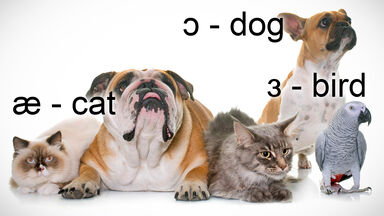Names in languages not using the Roman alphabet, or having 'no written alphabet should be spelt phonetically, as pronounced on the spot.
According to the developed cuneiform system of writing, words may be written by means of a sign (or combination of signs) expressive of the entire word, or they may be spelled out phonetically in syllables.
Similarly the word for " clothing " may be written SIG-BA, which represents again the " Sumerian " word, whereas, the BabylonianAssyrian equivalent being lubushtu it is so to be read in Semitic texts, and may therefore be also phonetically written lu-bu-ush-tu.
Thus the name of the deity, which enters as an element in a large proportion of the proper names,' was almost invariably written with the sign or signs representing this deity, and it is only exceptionally that the name is spelled phonetically.
Fortunately, in the case of a large number of names occurring on business documents as the interested parties or as scribes or as witnesses - and it is through these documents that we obtain the majority of the Babylonian-Assyrian proper names - we have variant readings, the same name being written phonetically in whole or part in one instance and ideographically in another.




